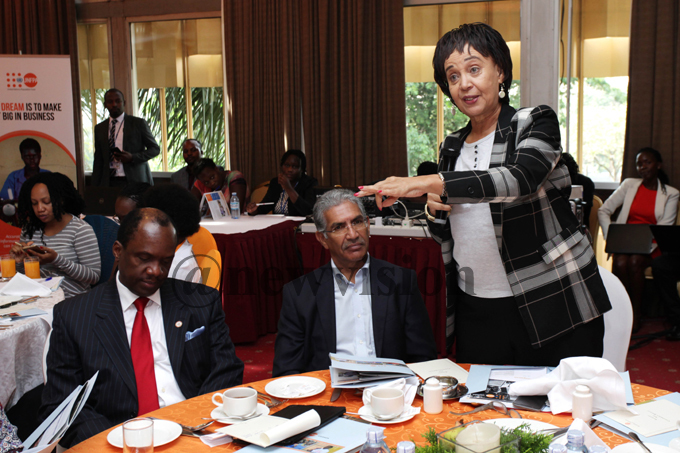Corporate companies to fight Gender-Based Violence
May 26, 2019
Business companies in Uganda, however, seem to have found a solution in the corporate collective against GBV.

Between 2012 -2017, it is estimated that Gender Based Violence (GBV) cost the Uganda economy approximately $ 20.77 million (about sh78.1 billion).
"This is nearly 0.25% of the national budget that our companies did not contribute to the economy due to something completely preventable," the chairman Private Sector Foundation Uganda (PSFU) Patrick Bitature disclosed.
He said workers especially women tend to be unprotected in the face of gender-based discrimination and workplace violence that includes sexual coercion and stigmatization.
"Many times, GBV is about power, the offender does what they do because they have the power," Diana Kibuuka, the National Director Business Network International Uganda said.
Kibuuka stated that having even just one offender is costing company productivity and talent over time.
Corporate collective against GBV
Institutions both public and private remain uncertain of how best to tackle the complex issue of GBV which include cases of sexual harassment.
Business companies in Uganda, however, seem to have found a solution in the corporate collective against GBV.
The new movement (public forum or group) aims to prevent and respond to GBV through supportive private sector workplace policies and structures.

Margaret Kigozi speaking during the launch of the Corporate Collective Against GBV (CCAG) Forum at Serena Hotel, Kampala
Working with the corporate private sector, it will collaborate and improve member companies' business practices to prevent, mitigate and respond to GBV.
For example, "We have the whistleblowing policy. We have also conducted outreaches and made our member companies sign up to provide better work conditions for women and girls," Hope Kasimbazi, the outreach and partnership officer PSFU reveals of their effort to end GBV at work.
Uganda has the whistleblowers' protection act, 2010 but there is low awareness on its guidelines which has hampered reporting of GBV due to fear of whistleblowers losing jobs especially the subordinates.
"We need to relieve the offender of their duties, however, powerful they are," Kibuuka emphasized during the launch of the corporate collect against GBV in Kampala.
Why collective action matters
Bitature explained that some incidences of GBV in Uganda, have forced women to lose time from paid work accounting for nearly 11 days per year.
"Imagine what that means for a company if you have all female employees and each of them takes 11 days off per year that is nearly one full day per month due to GBV at work.
If our employees must take time off to cope with issues of GBV, we know that there are greater costs to our economy as a whole," he explained.
The United Nations Population Fund Representative (UNFPA) is supporting the corporate collective against GBV.
The UNFPA Fund Representative in Uganda Alain Sibenaler believes private companies not only are the engines of the economy but can set the pace and give an example through their corporate culture on how GBV can be prevented at work, on the way to work and at home.
Through collective leadership, companies can learn from each other on how best to stop GBV at work, take it to the lowest level and set an example for public institutions as well.
Worldwide 818 million women (35%) over the age of 15 have experienced sexual or physical violence at home, in their communities or in the workplace, according to World Health Organization 2013 global and regional estimates of violence against women.
Gender-based violence also remains one of the most accepted violations of workers' human rights.
"Coming together to form this system-wide response to GBV will protect women and girls while boosting productivity and economic gains in individual businesses and companies across Uganda," Bitature said.
